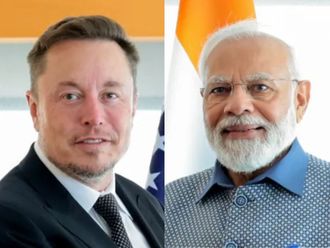Promotions are always sought-after by the shoppers but can be damaging for the bottom-line of a retail business. In fact, according to research by the University of California, 85 per cent of promotional sales in the US are unprofitable.
Nevertheless, some 6,000 retailers competed for a share of interest and share of wallet of shoppers during the 2012 Dubai Summer Surprises (DSS). At the same time, the Department of Economic Development (DED) closely monitored activities to ensure that the advertised deals are genuine. So, how can retailers offer discounts of up to 75 per cent and still make profits?
At first glance, it’s not wrong to assert that a good promotion should give the shopper enough reason to buy. However, a Canadian neurologist Donald Calne recognised that reasons lead to conclusions while emotions lead to actions. We support this theory and believe that looking deeper into the emotional motives behind purchase behaviour, even as mundane as bargain hunting, could lead to simple, yet effective promotion strategies.
Even in the most competitive environment like DSS, better understanding of customers’ emotional state can guide retailers to solutions that create a more conducive environment for bargain hunting. A customer-centric promotional strategy can help shoppers make smarter choices, get even more gratification from the process and the purchases, and consequently generate the volume that retailers are counting on.
Additionally, to maximise profit during DSS and Dubai Shopping Festival, retailers need to acknowledge that promotions carry an emotional charge that is different from those during the rest of the year.
Thrill of bargain-hunting
Those promotions are used as a tactic to induce trial, recruit new customers, boost sales or move stock. Savvy bargain-hunters often shop for the thrill of tracking down and acquiring the best deal or finding an unexpected bargain.
Buying goods online for a cheaper price, shopping at outlet malls, or searching out “buy one, get one free” offers are examples of shopping as competition.
However, during the DSS and DSF, the rules of the game change dramatically as bargain hunting takes on additional emotional dimensions, such as adventure and strategy. When thousands of brands and retailers participate, shoppers’ priorities switch from searching for the best deal to searching for the best product or service on discount.
A lot of shoppers deliberately put off big purchases until the DSS because they count on a wider choice for an affordable price. Fuelled with anticipation, shopping becomes an art.
Shoppers deploy their strategic skills to maximise their time, budget, and indulgence in a highly involved shopping experience.
In such a state of mind, Dubai residents and visitors are looking to immerse in shopping without unnecessary distraction. They expect transparency, clarity and good navigation to help them get the most out of their time and money.
Motivating shoppers
We have identified a few simple techniques that retailers could deploy to motivate consumers:
* Be transparent with the offers. Shoppers prefer to see a straight promise of 25 or 50 per cent off rather than an ambiguous range of 25 to 75 per cent.
* Consider re-arranging product placement or use colour coding according to the type and size of the discount. This approach helps shoppers to navigate easier and make better informed choices, leaving them with a stronger sense of achievement.
* Pre-empt shoppers’ need for price comparison. Shoppers don’t like to calculate, but appreciate when the retailer does it for them. “Was” and “Now” is an effective way to help shoppers see the value.
Dubai residents and visitors look forward to the DSS with excitement, whereas retailers, experiencing various economic pressures find tricky ways to disguise less favourable promotions. Instead, they should adhere to the fair trade policy and invest into improving the shopping experience that will pay back with the extended browsing time, increased basket size of the customers, and repeat visits.
— The writer is the head of planning for Saatchi and Saatchi X MENA.












